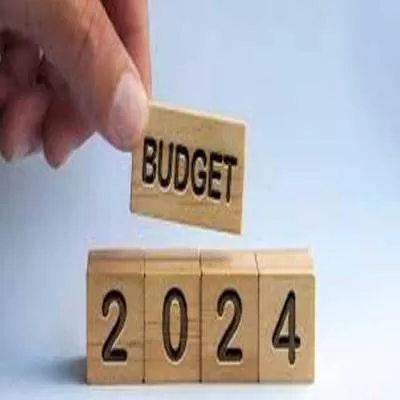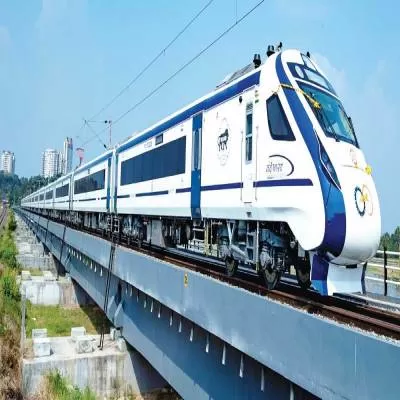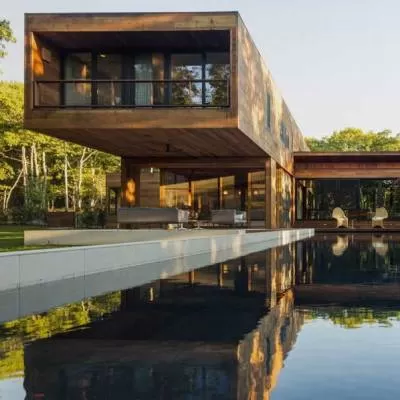- Home
- Real Estate
- The proposal to extend the completion period of building of houses from the present three years to five years is logical and commonsensical

The proposal to extend the completion period of building of houses from the present three years to five years is logical and commonsensical
JC Sharma, Vice Chairman & Managing Director, Sobha, on the Union Budget 2017-18:
The Union Budget announced is a pro-growth budget and a step in the right direction. We, at Sobha, welcome it whole-heartedly. The focus on affordable housing is laudable, as it has been accorded the infrastructure status, which will have many ripple effects.
The government’s proposal to take into consideration the carpet area of 30 and 60 sq m instead of built-up area of 30 and 60 sq m (as was the case earlier) of the houses is a welcome step, whereby 30 sq m limit will apply only in case of municipal limits of four metropolitan cities, while for the rest of country, including the peripheral areas of metros, limit of 60 sq m will apply. This will allow developers to plan their future projects within the 60 sq m carpet area, which will boost the housing sector immensely.
Additionally, the Finance Minister’s proposal to extend the completion period of building of houses from the present three years to five years is logical and commonsensical.
The reduction of the holding period for considering gain from immovable property to be long term from the present three years to two years, and the base year for indexation to be shifted from April 1, 1981, to April 1, 2001, for all classes of assets, including immovable property is another forward looking step. This will help reduce capital gains liability and encourage mobility of assets.
In case of joint development agreements signed for development of property, the liability to pay capital gain tax will arise in the year the project is completed. Landlords now need not fear that they will be required to pay their taxes at the time of the transfer of land, rather it will be required at the time of the completion of the project. Further, after completion of the project, developers can sell their unsold inventory within one year, post completion of the project without being subjected to any income tax liability. This will give the much needed breathing time to the developer community for liquidating the inventory.
The reduction of the rate of taxation from the existing 10 per cent to 5 per cent for individual assesses between income of Rs 2.5 lakh to Rs 5 lakh will help reduce tax liability of all persons below Rs 5 lakh income either to zero (with rebate) or 50 per cent of their existing liability. While the taxation liability of people with income up to Rs 5 lakh is being reduced to half, all the other categories of taxpayers in the subsequent slabs will also get a uniform benefit of Rs 12,500 per person. In case of double income families, ie up to Rs 10 lakh income annually, there will be multiple savings as indicated above, which can be invested in buying an affordable home easily. This will help fulfil the Prime Minister’s ambition of “housing for all”, thus fuelling the demand for affordable housing.
Furthermore, the proposal to reduce income tax from 30 to 25 per cent for smaller companies with annual turnover up to Rs 50 crore, in order to make MSME companies more viable and also to encourage firms to migrate to company format is a very progressive step, as it will make our MSME sector more competitive in comparison to larger companies. This, in effect, will give some extra savings in the hands of the micro, small and medium entrepreneurs for them to invest back either into their businesses or buy real estate as a safe investment.
Overall, the above proposed budget measures as announced will help revive the real estate sector. This will augur well for both, the consumers and developers alike.
- JC Sharma, Vice Chairman & Managing Director, Sobha JC Sharma, Vice Chairman & Managing Director, Sobha, on the Union Budget 2017-18: The Union Budget announced is a pro-growth budget and a step in the right direction. We, at Sobha, welcome it whole-heartedly. The focus on affordable housing is laudable, as it has been accorded the infrastructure status, which will have many ripple effects. The government’s proposal to take into consideration the carpet area of 30 and 60 sq m instead of built-up area of 30 and 60 sq m (as was the case earlier) of the houses is a welcome step, whereby 30 sq m limit will apply only in case of municipal limits of four metropolitan cities, while for the rest of country, including the peripheral areas of metros, limit of 60 sq m will apply. This will allow developers to plan their future projects within the 60 sq m carpet area, which will boost the housing sector immensely. Additionally, the Finance Minister’s proposal to extend the completion period of building of houses from the present three years to five years is logical and commonsensical. The reduction of the holding period for considering gain from immovable property to be long term from the present three years to two years, and the base year for indexation to be shifted from April 1, 1981, to April 1, 2001, for all classes of assets, including immovable property is another forward looking step. This will help reduce capital gains liability and encourage mobility of assets. In case of joint development agreements signed for development of property, the liability to pay capital gain tax will arise in the year the project is completed. Landlords now need not fear that they will be required to pay their taxes at the time of the transfer of land, rather it will be required at the time of the completion of the project. Further, after completion of the project, developers can sell their unsold inventory within one year, post completion of the project without being subjected to any income tax liability. This will give the much needed breathing time to the developer community for liquidating the inventory. The reduction of the rate of taxation from the existing 10 per cent to 5 per cent for individual assesses between income of Rs 2.5 lakh to Rs 5 lakh will help reduce tax liability of all persons below Rs 5 lakh income either to zero (with rebate) or 50 per cent of their existing liability. While the taxation liability of people with income up to Rs 5 lakh is being reduced to half, all the other categories of taxpayers in the subsequent slabs will also get a uniform benefit of Rs 12,500 per person. In case of double income families, ie up to Rs 10 lakh income annually, there will be multiple savings as indicated above, which can be invested in buying an affordable home easily. This will help fulfil the Prime Minister’s ambition of “housing for all”, thus fuelling the demand for affordable housing. Furthermore, the proposal to reduce income tax from 30 to 25 per cent for smaller companies with annual turnover up to Rs 50 crore, in order to make MSME companies more viable and also to encourage firms to migrate to company format is a very progressive step, as it will make our MSME sector more competitive in comparison to larger companies. This, in effect, will give some extra savings in the hands of the micro, small and medium entrepreneurs for them to invest back either into their businesses or buy real estate as a safe investment. Overall, the above proposed budget measures as announced will help revive the real estate sector. This will augur well for both, the consumers and developers alike.
























